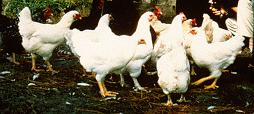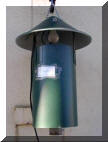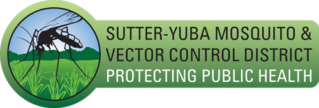Mosquitoes have plagued humans since prehistoric times. A few fossilized mosquitoes found preserved in amber have had full bloodmeals in their digestive systems! Surprisingly throughout history, more people have died of mosquito-borne diseases than from any other single cause of mortality, including wars and famine. Only in the last 100 years has science been able to prove that mosquitoes transmit deadly pathogens to man and animals.

Mosquitoes are known vectors of human and animal diseases. West Nile Virus (WNV), Western Equine Encephalitis (WEE), St. Louis Encephalitis (SLE), Venezuelan Equine Encephalitis (VEE), Dengue Fever, Malaria, Chikungunya, Yellow Fever and Zika are all diseases transmitted to humans by mosquitoes. Other mosquito-borne viruses have been found in California – Jamestown Canyon Virus, California Encephalitis and Morrow Bay Virus exist but have not been categorized as significant health concerns for Californians. The State of California utilizes mosquito control districts, health departments and other agencies to set up and operate mosquito-borne virus detection programs. Findings from these surveillance programs help officials to make decisions regarding mosquito control programs before human disease occurs. The State recognizes that only some of the many mosquito-borne diseases exist here in California. Only WEE, SLE, WNV, and Malaria are considered public health threats to Californians at this time. However, mosquitoes that carry many of the other diseases listed above have recently moved into several areas of California, making it possible that the list of mosquito-borne diseases in California could increase (please see section on invasive mosquitoes on this website). These mosquitoes and the diseases they carry are presently invading many parts of the world.

The Sutter-Yuba Mosquito and Vector Control District’s virus surveillance program uses a variety of methods to search for active virus during the mosquito season. Weekly mosquito collections are made in both Sutter and Yuba counties. These mosquitoes are collected alive and sent to a laboratory at the University of California Davis to be tested for different mosquito-borne viruses, which includes WNV, WEE and SLE. The results are reported to the District in a very timely manner, and let staff know if local mosquitoes are infected with virus. Seven chicken flocks are maintained in various places in the District for use as sentinels to detect virus. Every 2 weeks a blood sample is taken from each bird and tested at a State Public Health Laboratory. Results will show if virus has been transmitted to the chickens by mosquitoes. Positive results mean that the mosquitoes could also be transmitting the virus to people. The dead bird surveillance program detects birds that have died from infected mosquito bites. Residents who discover a dead bird are encouraged to telephone toll free 1-877-WNV-BIRD or 1-877-968-2473. Do not touch or move the bird. A call screener will be able to determine if the bird is suitable for virus testing. If it is, arrangements will be made for trained District personnel to come to your residence or place of work and collect the bird. A test sample from each bird will be sent to a UC Davis laboratory for testing.
